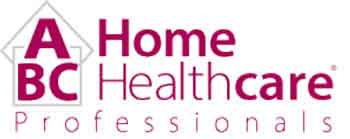Knowledge is Power: Breast Cancer Awareness
Breast Cancer is the most common cancer in women aside from skin cancer. As part of Breast Cancer Awareness month, we ask that you read and share this post with the women in your life. Education is an ongoing opportunity for all of us. The more we learn; the wiser we become; the better informed we are; the more prepared we’ll be.
Reducing Your Risk and Early Detection
While there are lifestyle changes like eating right and exercising that can help reduce your chance of developing Breast Cancer, the most important thing you can do is to follow the early detection guidelines recommended by the American Cancer Society. That means having a mammogram every year once you reach the age of 40 (if you are a high-risk candidate, your healthcare provider might suggest you begin at age 30); having a yearly clinical breast exam (CBE); and performing regular Self-Breast Examination (SBE). SBE is important because you know your self best and may be able to identify changes in your breasts rather than waiting for your annual appointment. If you are in a high-risk category your health care provider may include an MRI screening along with the mammogram. While being proactive cannot stop someone from developing cancer – it can greatly impact the outcome and treatment course someone will undergo upon being diagnosed with Breast Cancer.
Be proactive for your health
Early detection means to catch the cancer BEFORE you start having any symptoms. A mammogram is the cornerstone of the screening process which the American Cancer Society recommends. Self breast examination is important to be performed throughout the year so that you notice any changes with your breasts. Just because you perform self-examination does not mean you don’t need to have a mammogram. A mammogram is designed to identify Breast Cancer that is too small to be felt during routine breast self-examination or a clinical breast exam. The sooner cancer is caught – the more successful the outcome from the treatment plan. There is also a small chance that Breast Cancer might not be picked up as part of an annual mammogram. Therefore, it’s important that all women in good health continue to follow the American Cancer Society’s recommended early detection guidelines.
The Symptoms of Breast Cancer
The most common symptom of breast cancer is a new lump or mass. Traditionally it’s a painless, hard mass with irregular edges, but it might be tender, soft, rounded or painful. With that in mind, it’s so important to have any new lump or mass checked by your healthcare provider as quickly as possible.
Other symptoms of breast cancer may include:
- Swelling of all or part of a breast (even if no distinct lump is felt)
- Skin irritation or dimpling; breast or nipple pain; nipple retraction (turning inward)
- Redness, scaliness, or thickening of the nipple or breast skin
- Nipple discharge (other than breast milk). It’s possible for Breast Cancer to spread to lymph nodes under the arm or around the collar bone and cause a lump or swelling there, even before the original tumor in the breast tissue is large enough to be felt.
Your Health is Priceless
Do not let money be the factor that you put off your annual screening. Medicare, Medicaid, and most private health insurance plans cover mammogram costs or a percentage of them. Low-cost mammograms are available in most communities. Call the American Cancer Society at 1-800-227-2345 for information about facilities in your area. You can also find more information here at Mass.gov.
Breast Cancer Risk Factors
Some of the most common risk factors for developing Breast Cancer include:
- Age
The risk of developing breast cancer increases with age. Women over the age of 60 have higher risk. Breast Cancer is not common, but it does occur in women under the age of 35. - Family & Personal History
Individuals who’ve had a previous diagnosis of Breast Cancer or other Breast Disease are at an increased risk. If immediate family members have/had Breast Cancer, your odds are increased. It’s very important to know the age of diagnosis for those individuals. - The Breast Cancer Gene
A person may be born with a change in one of the two genes responsible for breast cell growth. Individuals with an alteration in the BRCA1 or BRCA2 gene have an increased risk of developing Breast Cancer. About 5-10% of all Breast Cancer cases are due to genetic changes. - Early menstruation
Women who began menstruating before age 12 are at increased risk for developing Breast Cancer. - Having later pregnancies
Pregnancy before the age of 25 might lower the risk, where pregnancy after the age of 35 might increase it. - Hormone Replacement Therapy (HRT)
Women appear to have an increased risk of Breast Cancer while on HRT and a short time thereafter, compared to those who have never used postmenopausal HRT (Women’s Health Initiative Study).
Talk with your doctor. It is so important that you share your family medical history to the best of your ability with your healthcare provider. It is through this communication that your doctor can help identify potential risks for your future health and implement the necessary precautions.
Resources
The web seems to have limitless numbers of resources these days. We’ve pulled together a small list of online sites with valuable tools and information.
American Cancer Society
www.cancer.org 1-800-227-2345
Cancer.Net
www.cancer.net
Patient information from the American Society of Clinical Oncology
National Cancer Institute
www.cancer.gov 1-800-422-6237
National Comprehensive Cancer Network
www.nccn.org 1-888-909-6226
BreastCancer.org
www.breastcancer.org
Breastcancer.org is a nonprofit organization dedicated to providing the most reliable, complete, and up-to-date information about BreastCancer.

